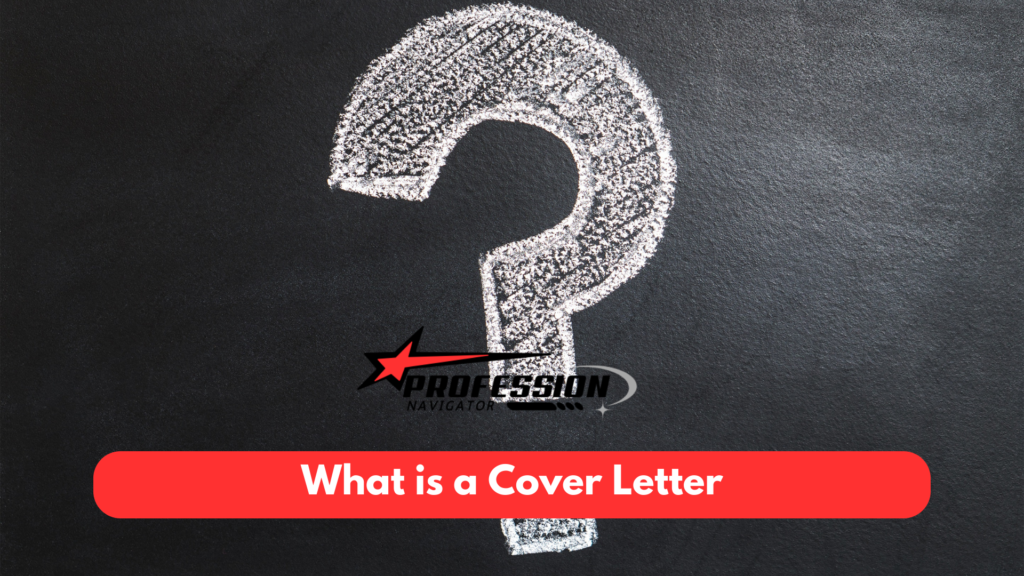What is a Cover Letter?
What is a Cover Letter: So, you’re on the hunt for a new job and keep seeing a “cover letter” mentioned in the application process. But what exactly is it, and do you need one? A cover letter is your chance to introduce yourself to a potential employer and explain why you’re a great fit. It’s a personalized document that complements your CV or resume and helps you stand out. In this article, we’ll break down what a cover letter is, how to write one, and why it’s a must-have in your job application toolkit.
Table of Contents
What is a Cover Letter?
In simple terms, a cover letter is a one-page document that you send along with your CV or job application. It’s like a personal note to the hiring manager, where you briefly introduce yourself, talk about why you’re interested in the job, and highlight some key reasons why you’re the perfect candidate. Think of it as your first impression, but on paper (or email). While your CV gives the employer a list of your experience, your cover letter gives you a chance to explain why you’re a great fit for the role and how your skills can benefit the company.
Read Also: National Career Service in the UK
Why Do You Need a Cover Letter?
You might be wondering, “Do I really need a cover letter?” The short answer is yes! Here’s why:
- First Impressions Matter: Your cover letter is often the first thing a hiring manager will read, so it’s your opportunity to make a positive impression right off the bat.
- Show Your Personality: Unlike your CV, which is more formal and factual, your cover letter lets you showcase your personality. Employers want to know who you are, and this is where you can let a bit of your character and enthusiasm shine through.
- Explain Career Gaps or Transitions: If you’ve had a gap in your employment or you’re switching careers, your cover letter is the perfect place to address this. You can explain what you’ve been up to and why you’re making a change without leaving the employer guessing.
- Tailor Your Application: A cover letter allows you to be specific about why you’re applying for that job at that company. It shows you’ve done your homework and are genuinely interested in the position.
Read Also: Hospitality jobs
What to Include in a Cover Letter
Now that we know why a cover letter is important, let’s go over what should actually go into one.
1. Contact Information
At the top of your cover letter, include your contact details (name, phone number, email) as well as the company’s info. This makes sure your letter looks neat and professional.
2. Greeting
Address the cover letter to the person who’s hiring, if you can. If you don’t know their name, “Dear Hiring Manager” works just fine. But if you do find a name, using it can give a nice personal touch.
3. Introduction
Your first paragraph needs to grab attention. Mention the job you’re applying for and give a quick line about why you’re interested. This is where you hook the reader and get them curious to learn more about you.
Example:
“I’m excited to apply for the Social Media Manager position at XYZ Company. With a passion for content creation and a background in digital marketing, I believe I can bring valuable skills to your team.”
4. Why You’re a Good Fit
In this section, highlight your skills and experiences that match the job description. This is your chance to show off a little! Tailor it to the role, and mention any achievements or past successes that align with what the company is looking for.
Example:
“In my previous role at ABC Corp, I managed multiple social media campaigns that increased engagement by 40%. I’m confident that my skills in strategy and content development will help your brand grow.”
5. Why You Want the Job
Now it’s time to show that you’ve done your homework on the company. Talk about why you’re specifically excited to work there, and how the role fits into your career goals. This helps the employer see that you’re not just mass-sending applications—you’re genuinely interested in this job.
Example:
“Your focus on innovation and creativity aligns perfectly with my passion for digital marketing. I’m particularly excited about the opportunity to work with XYZ Company because of your commitment to sustainability, a value that’s important to me.”
6. Closing
Wrap it up with a short closing paragraph, thanking the employer for considering your application. End on a positive note by expressing your enthusiasm for the opportunity to discuss how you can contribute to their team.
Example:
“Thank you for considering my application. I’m looking forward to the opportunity to discuss how my skills and experience can help drive XYZ Company’s success. Please feel free to contact me at your convenience.”
7. Signature
Sign off with a simple “Sincerely” or “Best regards,” followed by your name. If you’re sending a hard copy, you can include a handwritten signature above your typed name.
Top Tips for Writing an Awesome Cover Letter
Want to make sure your cover letter shines? Here are some tips to help you nail it:
- Keep It Short: Your cover letter should be no longer than one page. Keep it focused and get to the point quickly. Hiring managers don’t have time to read an essay!
- Tailor It for Each Job: Don’t just use the same cover letter for every application. Customize each one to fit the specific role and company you’re applying to. Employers can tell when you’ve put in the extra effort.
- Use Keywords: Many companies use software to scan cover letters for relevant keywords. Look at the job description and try to include some of the key phrases they’re looking for.
- Show Enthusiasm: Let your passion for the role and company shine through! Employers want to hire people who are genuinely excited about the job.
- Proofread: Typos and mistakes can hurt your chances. Always proofread your cover letter (or ask someone else to) before sending it off.
Common Mistakes to Avoid
While it’s important to know what to include in a cover letter, it’s also good to be aware of common mistakes:
- Being Too Generic: Avoid sending out the same letter to every employer. Tailor each one to the specific role.
- Focusing Too Much on Yourself: Remember, the employer is more interested in what you can do for them. Keep the focus on how your skills can benefit the company.
- Overexplaining: If you have a career gap or you’re switching industries, mention it briefly, but don’t overdo it. Focus on the positives and what you’ve learned.
Conclusion
A well-written cover letter can make all the difference when applying for a job. It’s your chance to introduce yourself, showcase your personality, and explain why you’re the best fit for the role. By tailoring your cover letter to each job and showing your genuine interest in the company, you’ll have a much better shot at landing an interview. So, take the time to craft a thoughtful, professional cover letter—it could be your ticket to your dream job!
FAQs
- How long should a cover letter be?
A cover letter should be no more than one page. Aim for around 3-4 concise paragraphs. - Is it necessary to include a cover letter with every job application?
While not always required, including a cover letter can give you an edge by showcasing your enthusiasm and fit for the job. - Can I reuse the same cover letter for multiple jobs?
It’s better to tailor each cover letter to the specific job and company you’re applying to. Personalization makes a big difference. - What should I avoid in my cover letter?
Avoid being too generic, focusing only on yourself, and making it too long. Keep it relevant, positive, and to the point. - Do I need to mention salary expectations in my cover letter?
Only if the job listing specifically asks for it. Otherwise, leave salary discussions for the interview stage.



